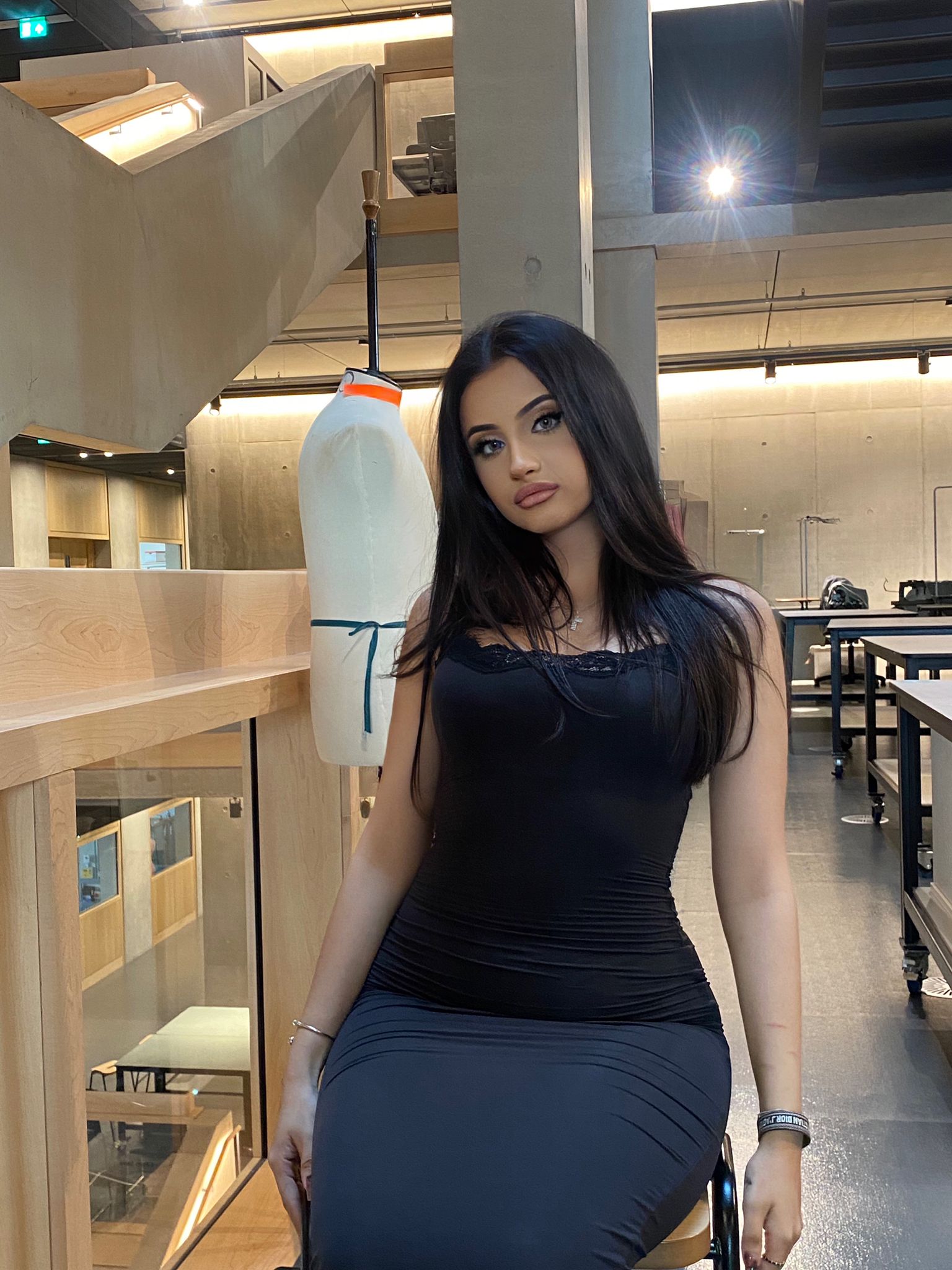Crafting Duality: Sustainable Couture and Cultural Identity in a Modern Arab Context
Category: Accessories
Competitions: International
As a second-generation immigrant, I was compelled to explore the common diaspora dilemma of navigating the complex balance between feeling too Arab in the Western world and too Western in my homeland of Lebanon. Delving into essay-based classes in both CCI and CYP, I explored the profound effects of a cross-cultural identity and grappled with the impact of orientalism on the perception of Arab women's sexuality. Through these academic explorations, I gained a deep understanding of the intricacies surrounding this topic. Armed with this knowledge, I learned to navigate the complexities of a dual Western/Arab cultural identity, embracing both facets and incorporating their inherent beauty into my creative works. Thanks to the confidence cultivated at LCF, I secured three internships, including one at Egypt's leading Leather design studio and two at Haute couture houses in Lebanon, namely Tony Ward and Jean Fares Couture. Throughout these internships, I exhibited a high calibre of work and demonstrated the diverse range of skills learnt at LCF. My understanding of design, extending beyond superficial aesthetics, proved invaluable. As a result, all three companies entrusted me with prominent roles in their design departments, allowing me to contribute significantly to the development of their fall/winter collections. LCF's emphasis on sustainability prompted me to confront the environmental ramifications inherent in the couture and leather industries, such as the excessive use of beading on couture garments intended for single wear. Bolstered by my convictions, I integrated my understanding of the nuanced identity of being a cross-cultural individual with a keen awareness of the environmental impact and occasional unethical practices prevalent in the fashion industry. This fusion of insights inspired me to dedicate my final collection to serving as a catalyst for positive change, prioritising environmental well-being in haute couture. my project has allowed me to identify a niche clientele that requires acknowledgement, recognition, and exploration. Central to my academic pursuits is a commitment to reshaping the narrative surrounding the Middle East, moving beyond Western orientalism, and investing in building a sustainable future while preserving and revitalising ancient cultures and rich traditions. Authenticity serves as the cornerstone of my work, challenging norms by crafting wearable art heavily influenced by Arab culture and promoting cultural representation and sustainability in the fashion industry. My work transcends the boundaries of mere fusion between art and fashion; it is a bold repudiation of the negative orientalist perceptions often imposed upon the Middle East. Serving as a canvas for modern Arab women, my creations and the brand I am establishing allow them to express their identity through a confident blend of modesty and modernity. Immersed in the rich tapestry of Arab culture, I draw inspiration authentically, sidestepping appropriation pitfalls and portraying cultural elements positively. My dedication extends to sustainability, marrying luxury with conscious material choices, ensuring that my creations are marvels without environmental compromise. Furthermore, I take pride in positioning my work as one of the pioneering Arab couture-based designers committed to implementing 100% sustainable beading. This addresses a prevalent issue in the couture industry, where the current use of non-biodegradable materials in traditional couture beading has contributed to severe environmental concerns. By championing sustainable practices, I aim to set a precedent for responsible craftsmanship and environmental stewardship within the industry. A key aspect of my project and brand's unique selling proposition is the creation of sustainable bio-material-based beads. To achieve this, I opted for a more intricate approach that would yield a more substantial overall impact. In the production of my bio-beads, natural resources such as eggshell powder and fruit-derived pigments are essential. Instead of sourcing these materials from large corporations, I made a conscious decision to invest in my cultural heritage. The natural resources used in my bio-beads are meticulously gathered from the small Bekaa village where I hail from. By collecting eggshells from local bakeries and purchasing fruits directly from local farmers, I not only ensure the authenticity of my materials but also contribute to supporting a community facing significant economic challenges. Despite the challenges posed by the tensions of war in Lebanon, which nearly hindered my access to natural materials and leather, I persisted in finding a way to source these resources from my homeland rather than opting for easier alternatives. This demonstrates my unwavering dedication not only to my craft but also to supporting the community that nurtured me.

